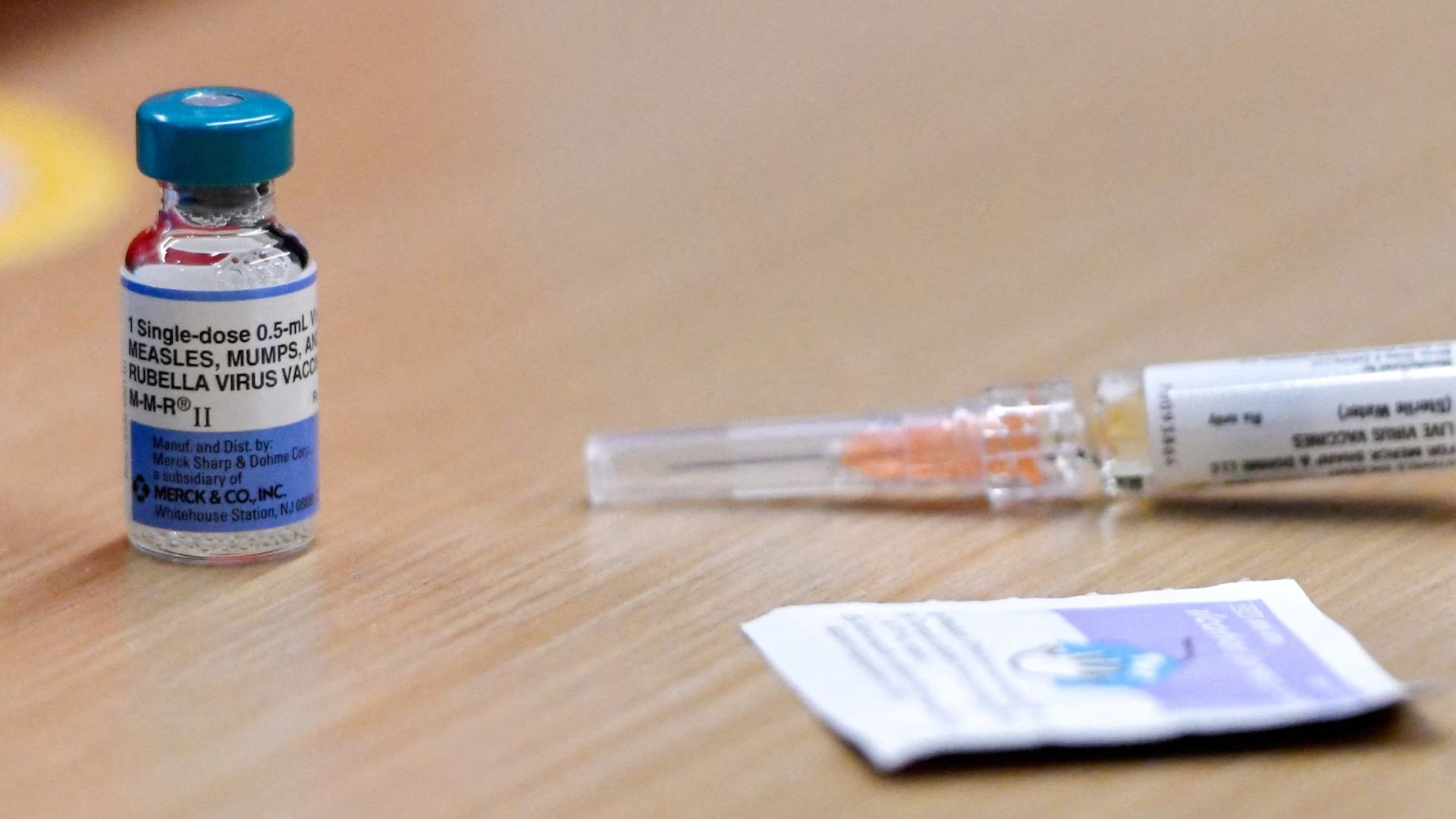Local News
Experts explain how long the measles vaccine protects and what people need to know about staying safe from outbreaks in 2025

Rochester, New York – As measles cases climb again in the United States and Canada, health officials are urging people to check their vaccination status and take steps to protect themselves. Outbreaks have been reported across the southwestern U.S. and parts of western Ontario, raising concerns about how quickly the virus can spread among unvaccinated populations.
While the number of cases remains relatively low in some places, including New York, experts are warning that now is the time to stay alert. Measles is not only highly contagious—it can also lead to serious and sometimes deadly complications.
For many, the good news is that the measles vaccine provides long-lasting protection. According to the Centers for Disease Control and Prevention (CDC), most people who receive the measles, mumps, and rubella (MMR) vaccine—or the combined measles, mumps, rubella, and varicella (MMRV) vaccine—will be protected for life. Still, understanding how the vaccine works and knowing when you might need to update your protection is crucial in 2025.
Why Are Measles Cases Rising?
Measles spreads faster than almost any other virus. In a community without immunity, one infected person can pass the virus to 12 to 18 other people. That’s why measles outbreaks can explode so quickly once they start.
Read also:
“In a population that is not vaccinated, one person can infect another 12 to 18 people. That’s about a 90 percent attack rate and is honestly incredibly scary,” said Jennifer Nayak, MD, associate professor of pediatric infectious diseases with UR Medicine.
Stopping the spread of measles requires high levels of immunity—over 95% of the population needs to be vaccinated to prevent outbreaks. Unfortunately, vaccination rates are falling below that critical threshold in some areas. In Monroe County, for example, fewer than 88% of children are fully vaccinated by the age of two, leaving the community vulnerable.
Recognizing the Symptoms of Measles
Measles can seem like a bad cold at first, but it can quickly become much more serious. Common early symptoms include a high fever, cough, runny nose, and red, watery eyes. After a few days, a red blotchy rash usually appears, beginning on the face and then spreading downward across the body.
Complications from measles are more common than many people realize. These can include painful ear infections, life-threatening pneumonia, and even brain swelling. Rarely, a deadly brain disease called subacute sclerosing panencephalitis (SSPE) can develop years after the initial infection.
Infants, young children, and people with weakened immune systems are especially at risk for severe complications, making community-wide immunity all the more critical.
How Measles Spreads So Easily
One reason measles is so dangerous is how easily it spreads. The virus travels through the air when someone coughs or sneezes—and it can linger for hours even after an infected person has left the room.
“Measles can stay in the air and the room for up to two hours,” said Dr. Nayak. “That means if you’re going shopping an hour behind someone with measles, you can still potentially get infected. That’s why we’re scared of the contagiousness.”
People with measles are contagious even before they develop the characteristic rash—about four days before and four days after it appears. This makes it extremely difficult to contain outbreaks without strong vaccination coverage.
How Long Does the Measles Vaccine Last?
For most people, the measles vaccine provides lifelong protection. The MMR vaccine is highly effective: one dose offers about 93% protection against measles, while two doses bump that protection up to 97%.
Even if a vaccinated person does happen to contract measles, they tend to experience much milder symptoms and are less likely to pass the virus to others.
Read also:
People born before 1957 are generally considered immune because measles infections were so widespread before the vaccine became available. However, if you were vaccinated between 1963 and 1967, you might have received an early version of the vaccine that was less effective. If you’re unsure about your vaccination history, it’s a good idea to check with your doctor.
Why Vaccination Matters More Than Ever
Vaccination does more than protect the individual—it also protects the wider community, including those who cannot be vaccinated, like newborns and people undergoing cancer treatments.
Keeping up with routine vaccinations is a simple but powerful way to help stop the virus from spreading. Experts recommend taking these steps:
• Confirm your vaccine status with your healthcare provider.
• Ensure that your family, especially young children, are up to date with their shots.
• Encourage friends and neighbors to get vaccinated.
Infants between 6 and 11 months who are traveling to areas with active measles outbreaks should receive an early dose of the vaccine. However, because this early dose doesn’t provide full protection, they’ll still need two additional doses after their first birthday to complete the standard vaccine schedule.
What To Do If You Think You Have Measles
If you or someone in your household shows signs of measles, it’s crucial to act quickly—and carefully.
Rather than heading straight to a doctor’s office, you should call your healthcare provider first. Medical teams need to take special precautions to avoid exposing other patients to the virus. Your doctor will guide you on how to get tested and what steps to take to protect yourself and others.
Isolating yourself at home is key until you receive medical advice, especially to prevent spreading the virus to vulnerable groups.
A Time to Stay Alert but Not Panic
While the rising number of measles cases in 2025 is cause for concern, public health experts emphasize that it’s not too late to act. By making sure our vaccinations are up to date and encouraging others to do the same, we can protect ourselves and those around us.
Measles may be highly contagious, but it’s also highly preventable. In a time when the virus is making an unwelcome comeback, vaccination remains our strongest defense—and an important way to keep our communities safe.

-

 Local News12 months ago
Local News12 months agoNew ALDI store close to Rochester to begin construction in late 2025 or early 2026
-

 Local News12 months ago
Local News12 months agoRochester Lilac Festival announces exciting 127th edition headliners
-

 Local News10 months ago
Local News10 months agoCounty Executive Adam Bello and members of the county legislature celebrate exceptional young leaders and advocates at the 2025 Monroe County Youth Awards
-

 Local News10 months ago
Local News10 months agoThe 2025 Public Market Food Truck Rodeo series will begin this Wednesday with live music by the Royal Bromleys